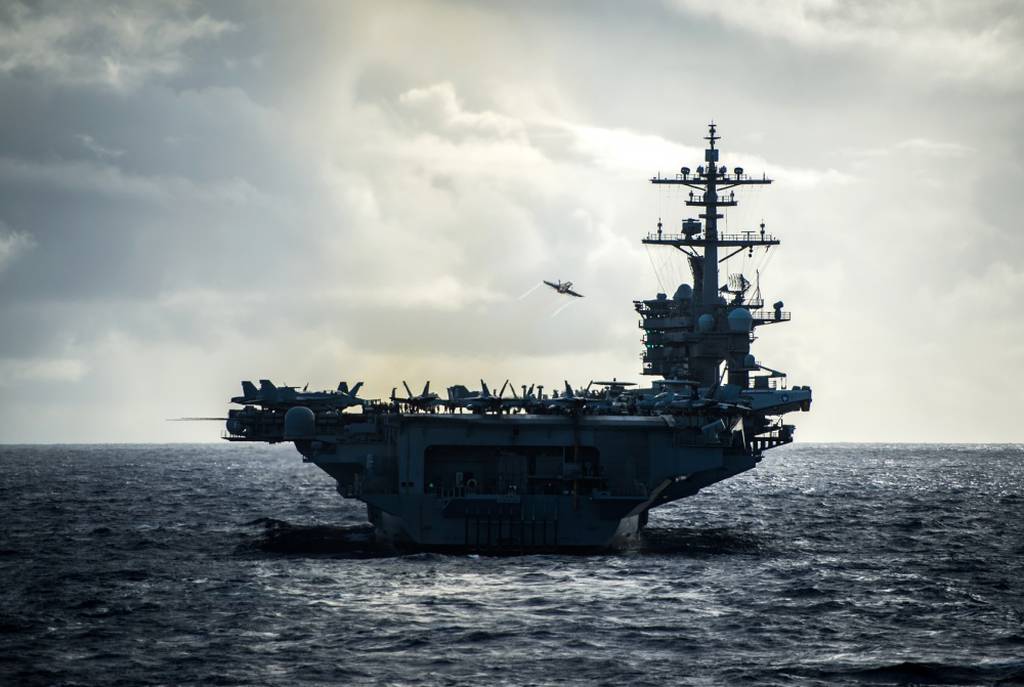
The U.S. Navy’s fiscal 2025 budget request for Project Overmatch, its effort to digitally link people, ships and sensors over vast distances, is too sensitive to make public, according to the service.
Asked for potential spending details, a Naval Information Warfare Systems Command spokesperson said the budget is considered controlled unclassified information, or CUI, “and as such, we are unable to provide the requested information at this time.” The Navy sought at least $192 million in FY24 and secured $226 million in FY23.
Project Overmatch represents the service’s contribution to the Defense Department’s multibillion-dollar connectivity campaign known as Combined Joint All-Domain Command and Control. Military leaders have shared few specifics about its maturation since inception in 2020, citing Russian and Chinese monitoring. It was not clear why information could be distributed in past fiscal years but not the upcoming one.
Rear Adm. Ben Reynolds, the Navy’s deputy assistant secretary for the budget, previously told reporters at the Pentagon that Project Overmatch funding would be applied to software development and “some hardware that goes on our ships, goes into our numbered fleets, and then provides them the capability to operate distributed.”
RELATED
:quality(70)/cloudfront-us-east-1.images.arcpublishing.com/archetype/OUJLGE5JFZCFBDAUSJHPJDFYXE.jpg)
“We remain committed to our Overmatch capabilities,” Reynolds added. “The ability to move information across a distributed fleet? That’s very important.”
At least three carrier strike groups already have Project Overmatch capabilities aboard, C4ISRNET previously reported. While a spokesperson at the time declined to the name the groups, the individual said rollout to carrier strike groups, amphibious ready groups and maritime operation centers was “way ahead” of an FY25 mandate from the chief of naval operations.
Navy officials have said Project Overmatch’s injection into the fleet will first focus on the Indo-Pacific region, where Washington may butt heads with Beijing and where interception and jamming jeopardize the network activities. Trials with the advanced technology kicked off last year with the Carl Vinson carrier strike group off California.
Author: Colin Demarest
Source: DefenseNews



